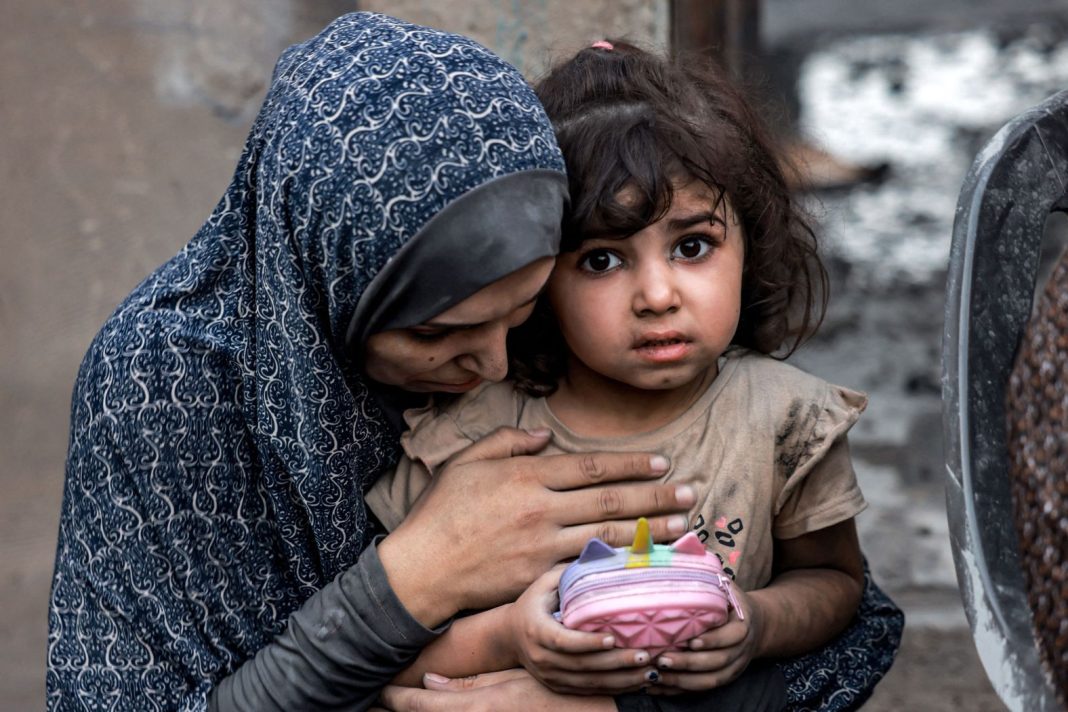“There’s not enough food. People are starving,” WFP Deputy Director Carl Skau wrote on X, formerly Twitter, following a visit to the besieged coastal strip on Saturday.
He said his team had reached more than a million people, “but the situation is untenable. We need to get our supplies in”, calling for an immediate humanitarian ceasefire.
Only a fraction of the necessary food is reaching the Gaza Strip, there is a lack of fuel, and no one is safe, Skau continued in a WFP statement, adding: “We cannot do our job.”
Camps and emergency shelters were overcrowded, he wrote, as the muffled thunder of Israel’s bombing raids could be heard in the background every day.
“With law and order breaking down, any meaningful humanitarian operation is impossible,” the United Nations official said.
“Gazans are living packed into unhealthy shelters or on the streets as winter closes in, they are sick, and they do not have enough food,” he added.
Israel continues its bombardment of Gaza after the United States vetoed a UN Security Council resolution calling for a ceasefire on Friday, a move strongly condemned by humanitarian groups.
In a rare move, UN Secretary-General Antonio Guterres had triggered the vote by invoking Article 99 of the UN charter, a measure unused in decades, saying, “The people of Gaza are looking into the abyss.”
At least 17,700 Palestinians, mostly women and children, have been killed in two months and nearly 49,000 wounded, while many people are still trapped under the rubble.
“We have food on trucks, but we need more than one crossing. And once the trucks are inside, we need free and safe passage to reach Palestinians wherever they are. This will only be possible with a humanitarian ceasefire and ultimately, we need this conflict to end,” he stated.
On Saturday, Skau told the Reuters news agency a new process for inspecting Gaza aid at Karem Abu Salem crossing, called Kerem Shalom by Israel, is being tested.
Israel has so far rebuffed UN pleas to open Karem Abu Salem, but both signalled on Thursday that the crossing could soon help process the delivery of humanitarian supplies into Gaza.
Until now, limited quantities of aid have been delivered from Egypt through the Rafah crossing, which is ill-equipped to process large numbers of trucks.
Trucks have been driving more than 40km (25 miles) south to Egypt’s border with Israel before returning to Rafah, leading to bottlenecks and delays.
“It’s good, it’s useful because it would also be the first time that we can then bring in a pipeline from Jordan. But we need that entry point as well because that would make all the difference,” Skau said.
Speaking to reporters in Israel earlier this week, Colonel Elad Goren, head of the civil department at COGAT, the Israeli agency for civilian coordination with the Palestinians, stated, “We will open Kerem Shalom just for inspection. It will happen in the next few days.”
Goren added a COGAT team was engaged in discussions with the United States, the UN and Egypt on raising the volume of humanitarian assistance.
“We have frontloaded with our internal resources so that we have food available in Egypt and in Jordan to reach some 1,000,000 people in one month. We are ready to roll. The trucks are ready to move,” Skau continued.
Skau described the situation in Gaza as increasingly chaotic as people grabbed what they could from aid distribution points.
“There is a question for how long this can continue, because the humanitarian operation is collapsing,” he added.
“Half of the population are starving, nine out of 10 are not eating every day. Obviously, the needs are massive.”
